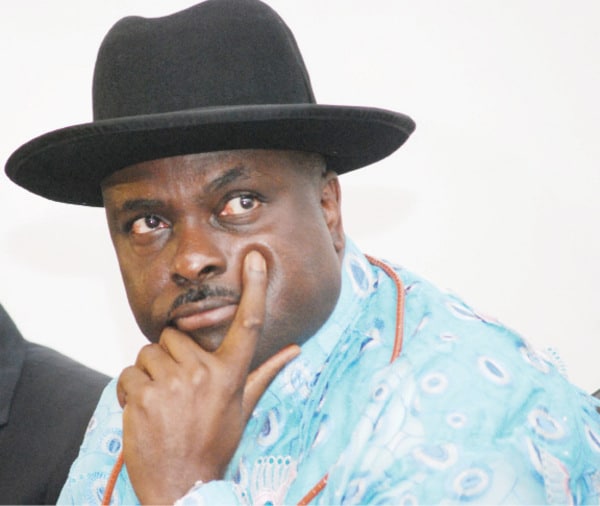
Bhadresh Gohil, a former lawyer to Delta State’s former Governor, James Ibori, has been ordered by a United Kingdom (UK) court to pay £28 million for helping to hide funds gained illegally.
The Indian national was said to have been convicted in 2010 of 13 counts of money laundering and other offences linked to his role in aiding Ibori to hide the proceeds from criminal activities.
OsunDailyNG understands that Gohil was sentenced to ten years in prison in 2010 and has since served half of his sentence.
However, the UK court, according to Reuters, has ordered Gohil to pay over £28 million or face a further six-year sentence.
Meanwhile, James Ibori has reacted to reports of him risking a fresh 10-year jail term following a fresh order by the United Kingdom court to seize more than £100 million ($129 million) from him.
OsunDailyNG understands that the British authorities had indicted Ibori for stealing public funds and money laundering through UK banks and properties. But, the trial on confiscation proceedings against Ibori began in February 2017.
Reacting to the case against him, the Ibori wondered if he was really sane for always believing that justice and fairness would triumph in the British Court.
He disclosed how on several occasions, the British Court had persecuted him with various allegations.
According to Ibori, “Albert Einstein is quoted as saying that the ‘definition of madness is doing the same thing over and over again and expecting a different result’.
“If that is true, then I must be going mad because in over a decade since the British Courts have been persecuting myself and those close to me – I kept believing that justice and fairness would eventually triumph.
“In hearing after hearing through the years, despite some of the most logic-defying rulings against me- I still believed. Despite clear evidence of police corruption against the main officer in my case (evidence so strong that it caused the lead prosecutor to resign from my case) I still believed.
“Despite a clear victory in my 2013 Confiscation hearing which left the Judge unable to make an order against me, only to have him rule that the prosecution should start the trial afresh some years later – I still believed.”


